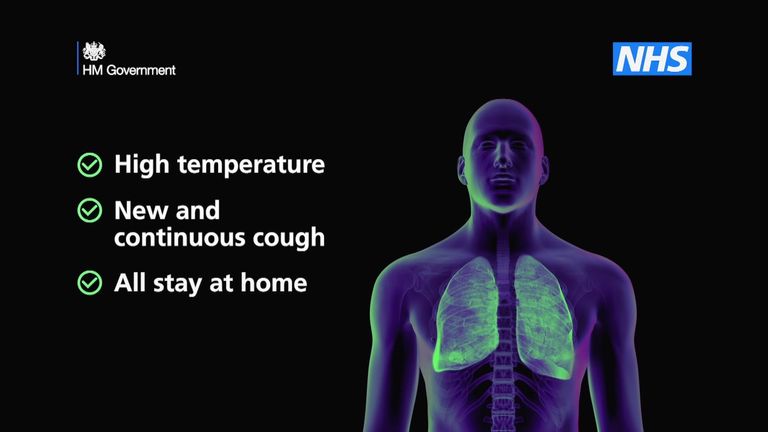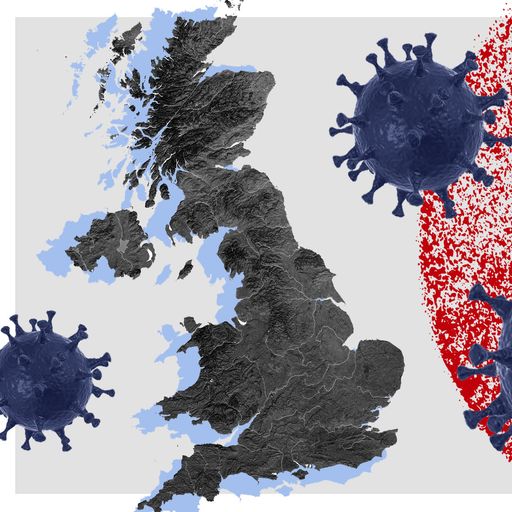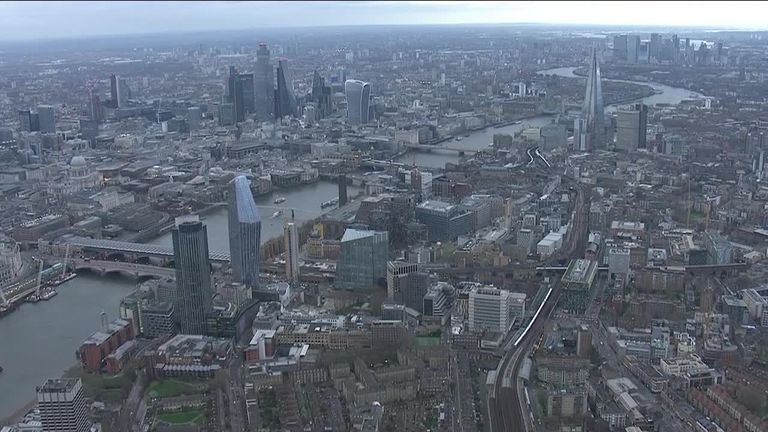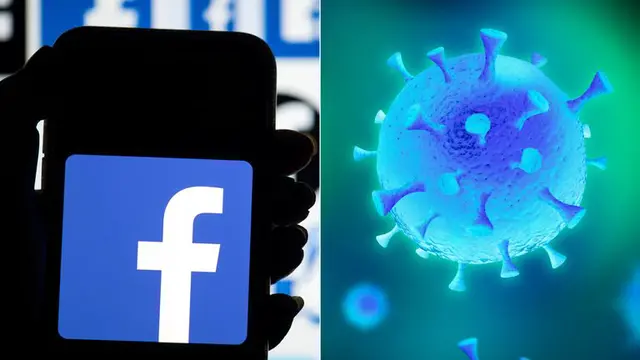The government has not run a single advert about the coronavirus pandemic from its official Facebook or Instagram accounts, Sky News can reveal.
This is despite the fact that the UK has been offered "millions" in free ad credits to use on two of the world's largest digital advertising platforms.
The government has also not run ads through other popular official accounts, despite taking a series of unprecedented steps to safeguard the public and the economy during the crisis.

Coronavirus advice to be aired in TV adverts
Neither the official UK Prime Minister account nor Boris Johnson's personal account have run ads mentioning
coronavirus
, or any of the measures introduced to delay its spread, data released by Facebook shows.
The official NHS account has run six ads on Facebook and Instagram since the start of the pandemic, advising anyone with symptoms to stay at home for 14 days.
The messages, which were last updated on 19 March, do not mention more stringent government guidelines announced since that time, such as social distancing or self-isolation measures for vulnerable individuals.
Facebook CEO Mark Zuckerberg announced earlier this month that he would give the World Health Organisation (WHO) "as many free ads as they need" - and promised "millions more in ad credits to other organisations" during the coronavirus crisis.
A Facebook spokesperson confirmed to Sky News that the NHS and UK government were among these organisations.
The misinformation outbreak
The news follows criticism of government communications after a weekend in which many people failed to follow - or clearly understand - the UK guidelines about social distancing.
Digital ad experts have said they are puzzled by the lack of a clear government response in the face of this confusion, especially given the amount of new information the public has needed to take on board in order to stay safe during the outbreak.
"I'm sure everyone in government is working flat out right now, but even so I find this hard to understand," said Carl Miller, co-founder of the Centre for the Analysis of Social Media.
"We know that people with vulnerability to coronavirus are massively different, as are the messages that people need to hear.
"Targeted ads should be on the front lines."

Coronavirus: The infection numbers in real time
Sam Jeffers, founder of Who Targets Me, said targeting messages at specific groups would be especially effective given the amount of time people are currently spending online.
"You can produce simple messages quickly and you can get them online and in front of millions within hours," he told Sky News.
"It's therefore surprising that a government that was so relentless and disciplined around its Brexit messaging is currently missing the 'public' part of this extreme public health emergency."
**:: Listen to the Daily podcast on **
Apple Podcasts
**, Google Podcasts
, Spotify
, Spreaker
**
A government spokesperson told Sky News: "The government is using all available channels, including Facebook and Instagram adverts to provide the public with the information it needs to fulfil its crucial role in delaying the spread of coronavirus.
"The response to our adverts has generated a huge amount of organic reach through our cross-government social media approach.
"This is in addition to the NHS messaging, which has been our priority so far."
The ads run from the UK government account since the start of February promote careers in the NHS and warn about the dangers of disinformation online, without specifically mentioning COVID-19.

Russia's misinformation spread of COVID-19
According to the Facebook Ad Library, which provides information on ads run on Facebook and Instagram, these ads have had £11,603 of public money spent on them in the last seven days.
The government launched a UK-wide coronavirus public information campaign in early February.

How to practise social distancing
Based on the
"Catch it, Bin it, Kill it"
campaign used for flu and norovirus, it promised to "promote important hygiene practices, such as regularly washing hands and always sneezing into a tissue, to stem the spread of viruses".
In the lead-up to a potential no-deal exit from the European Union on 31 October, the government spent £46m on hundreds of digital and physical ads warning businesses and individuals to prepare themselves.
The campaign, which was described as one of the biggest advertising campaigns since World War II, was criticised by the government spending watchdog, the National Audit Office, for failing to inform the public.
 简体中文
简体中文

